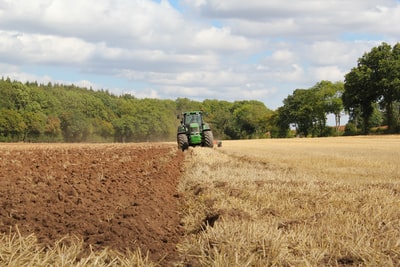
Marvel at the intricate dance of nature as sustainable farming methods unlock the secrets of the soil, nurturing crops with precision and care. From crop rotation to cover cropping, a myriad of techniques are employed to promote biodiversity and protect the environment.
In a world grappling with the consequences of industrial agriculture, sustainable farming offers a ray of hope, a path towards a brighter future. Join us as we delve into the world of sustainable farming, breaking the code to reveal the myriad benefits it holds for both farmers and the planet.
Let’s explore how this age-old practice is redefining the way we produce our food, creating a more harmonious relationship between humans and nature. Get ready to be inspired by the power of sustainable farming and its potential to transform our food system for the better.
Welcome to the revolution. Welcome to sustainable farming.
Table of Contents
Improved Environmental Health Through Sustainable Practices
By implementing techniques such as crop rotation, integrated pest management, and conservation tillage, sustainable farming aims to minimize negative impacts on ecosystems and ensure long-term agricultural productivity. Farmers who embrace sustainable methods not only contribute to environmental health but also benefit economically by reducing input costs, improving soil fertility, and enhancing biodiversity on their farms. Sustainable farming is a holistic approach that promotes balance between agricultural production and environmental conservation.
Less water pollution
Farmers can reduce their use of harmful chemicals and promote biodiversity by diversifying crops, using organic methods, and conserving water. This helps improve soil health, reduce pollution, and make farms more resilient to climate change. Sustainable agriculture aims to balance meeting current needs without compromising the future.
Moreover, sustainable agriculture is vital for addressing food insecurity and promoting food sovereignty. By supporting local food systems, cutting food waste, and empowering small-scale farmers, it ensures a fairer distribution of resources and access to healthy food. Sustainable agriculture also prioritizes the well-being of farmworkers and communities, fostering social cohesion and rural development. By committing to sustainable agriculture, we can create a more resilient and flourishing food system that benefits both people and the planet.
Soil quality preservation
Maintaining soil health is essential for sustainable agriculture. Practices like cover cropping and minimal tillage help preserve soil structure and fertility. These practices also promote beneficial soil microbes and reduce erosion, enhancing crop productivity. Investing in soil health not only improves agricultural outcomes but also benefits ecosystem health and food security for future generations.
Sustainable agriculture emphasizes the importance of soil health to support plant growth and ecosystem functioning. Practices like crop rotation and composting enhance nutrient availability and water retention in the soil. Healthy soils are crucial for resilient agricultural systems, providing the foundation for sustainable farming practices. Prioritizing soil health not only benefits current crop yields but also ensures the long-term sustainability of agricultural landscapes.
Economic Advantages of Sustainable Farming
Sustainable farming methods can bring economic benefits to farmers. By reducing costs for fertilizers and pesticides, farmers can save money and maintain or increase yields. In addition, practices like crop rotation and cover cropping can improve soil health, reducing the need for expensive soil amendments and boosting productivity. These benefits not only help individual farmers but also support the financial stability of the agricultural sector.
In addition to cost savings, sustainable farming provides long-term economic resilience for farmers. By prioritizing soil health and biodiversity, farmers can create more sustainable and productive systems that can withstand market fluctuations and environmental challenges. Investing in sustainable farming can lead to improved land productivity over time, ensuring financial stability for farm operations. By focusing on sustainability, farmers can improve their economic outcomes and contribute to a more resilient food system for the future.
Cost savings
Farmers can save money by using cost-effective farming techniques. Precision farming and efficient irrigation systems help reduce expenses. Agroecological methods promote sustainable and affordable farming practices. Integrated pest management cuts costs for farmers. Using renewable energy sources also helps farmers save money.
Long
The benefits of sustainable agriculture extend beyond the farm, impacting the environment and society. Sustainable farming practices, such as using fewer chemicals and conservation methods, lead to cleaner air and water, preservation of biodiversity, and support for healthier ecosystems. Additionally, sustainable agriculture promotes food security by encouraging resilient farming practices that can adapt to climate change, ensuring a stable food supply for future generations.
Furthermore, sustainable agriculture offers economic advantages as well. By implementing practices like crop rotation, cover cropping, and integrated pest management, farmers can reduce costs, increase crop yields, and improve profitability. Through enhancing soil health and reducing reliance on external inputs, sustainable agriculture promotes long-term financial stability, benefiting farmers, strengthening rural economies, and supporting food sovereignty in communities.
Morzart Trading: Offering High-Quality Products and Promoting Sustainability Worldwide
At MORZART TRADING, we pride ourselves on being more than just manufacturers of agricultural products and wholesalers of energy drinks. Our partnership with Global Import Export Group, ATRAD Sales Limited, and Morzart Trading Pty Ltd allows us to offer a wide range of high-quality products to our global customers.
Our mission is simple yet impactful: to provide the best agricultural and other products in the market. Through sustainable farming methods, we are able to ensure the longevity of our resources and contribute to a healthier planet.
Join us in our journey towards a more sustainable future.
All in All
In a world where environmental degradation and food insecurity are on the rise, sustainable farming methods offer a glimmer of hope for the future. Through practices such as crop rotation, intercropping, and organic pest control, farmers can improve soil health, conserve water, and reduce greenhouse gas emissions.
But the benefits of sustainable farming extend far beyond the health of the planet. By adopting these methods, farmers can also increase their resilience to climate change, minimize their reliance on costly inputs, and improve the quality of the food they produce.
In essence, sustainable farming is not just about protecting the environment—it’s about creating a more equitable, resilient, and prosperous food system for all. So as we look towards the future, let’s remember the power of sustainable farming to transform our world for the better.




